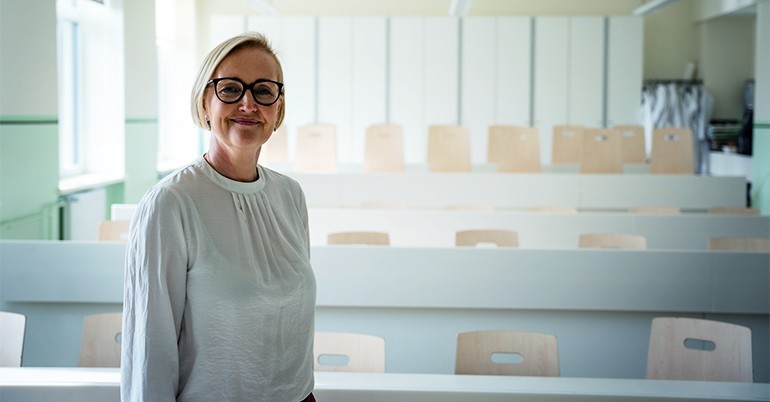Knowledge and skills of Estonian children rank first in Europe and among the best in the world
Kristina Kallas
Minister of Education and Research
Our education continues to rank among the best in the world. Congratulations to the students and their parents, their teachers and school administrators! There is cause for being happy but we must also look behind the results – what is well and what are the aspects that need more attention.
The focus of the PISA 2022 education assessment was on mathematics but knowledge in science and reading was also assessed. In mathematics, Estonia tied for first and second place with Switzerland among European countries; it ranked first in science and tied for first and second place after Ireland in reading. We are leading in the world alongside top-performing Asian countries.
Comparing the results with other countries, Estonia stands out with the great number of children acquiring basic knowledge in mathematics. This means that teachers are working extensively with all children equally and we receive top scores thanks to not only the most capable students but the above average result of all children. The professional skills and freedom in choosing their teaching methods are key here. PISA demonstrated that the school administrator and teacher enjoy great autonomy in Estonia; we rank first among countries in the freedom of teachers when compiling the curriculum and participating in the executive decisions of the school.
Additionally, Estonia is a digital country where digital issues are closely integrated into our education system. We know that artificial intelligence in part helps solve the issue of the workload of teachers. AI helps automate certain routine processes, such as grading and feedback. This leaves the teachers with more time to develop and supervise the students in achieving 21st century skills: critical thinking, problem solving and teamwork. Everything the PISA survey measures.
The survey also showed that Estonian children believe the results are up to them. As in previous times, we rank first among countries in the growth mindset. Estonian children believe that the ability and intelligence of a person can evolve with effort. Estonian children also feel safe in schools. The sense of security of students ranks higher than the OECD average, especially thanks to a safer route to school.
It makes us happy that in addition to good knowledge and skills, Estonian children are generally content with their lives. Satisfaction with life (an average of 6.91 points on a 10-point scale) is higher than the OECD average.
According to the survey, the challenges we need to address actively in the coming years are the lack of qualified teachers, which has increased compared to the previous survey. In addition, the impact of the socio-economic background of students on their access to good-quality education has increased, approaching the OECD average (Estonia 13.4%; OECD 15.5%). The schools with Estonian as the language of instruction perform better than those with Russian as the language of instruction. The results of basic school pupils in small towns have gone down; however, the result of the basic school students in Estonia's rural regions remains strong, ranking high above the OECD average. The results of students have fallen worldwide this time, yet the results of Estonian students have seen a smaller decrease, which shows that we managed to organise learning during the coronavirus crisis quite well.
Now that the results have been published, we can look at them more closely. The data collected is the basis for future education decisions. However, today we can be happy and note that Estonia is a country that believes in education and its education is at the top!







